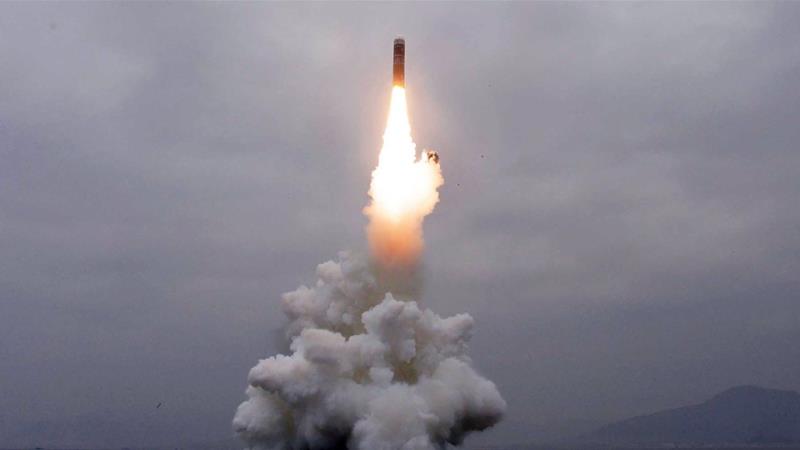Home » Middle East »
IAEA chief asks Iran for 'prompt access' to blocked nuclear sites
UN’s nuclear agency suspects Iran is ‘sanitising’ two sites where it has stored or used undeclared nuclear material.
The head of the United Nations’s atomic watchdog agency has said Iran must provide inspectors “prompt access” to two sites where the country is thought to have stored or used undeclared nuclear material.
Speaking after a meeting of the agency’s board in Austria’s Vienna on Monday, International Atomic Energy Agency Director-General Mariano Grossi told reporters he had made his case with “Iranian authorities at higher levels”.
More:
-
France, UK, Germany ‘regret’ US end to three Iran nuclear waivers
-
Explainer: How does Iran nuclear deal’s dispute mechanism work?
-
US extends Iran nuclear cooperation sanctions waivers
“We need this cooperation,” he said. “I regret that at this point we have this disagreement.”
Grossi told the board that for more than four months, “Iran has denied us access to two locations and that, for almost a year, it has not engaged in substantive discussions to clarify our questions related to possible undeclared nuclear material and nuclear-related activities”.
Activities at all three sites are thought to have been from the early 2000s before Iran signed the 2015 nuclear deal with world powers, and Iran maintains the IAEA has no legal basis to inspect them.
Grossi’s comments underlined the agency’s concerns outlined in the agency’s written report to members earlier this month about access to two of three locations it identified in March.
‘Extensive sanitisation’
In the report, the IAEA said in its current report it had determined that one site had undergone “extensive sanitisation and levelling” in 2003 and 2004 and there would be no verification value in inspecting it.
It said Iran has blocked access to the other two locations, one of which was partially demolished in 2004 and the other at which the agency observed activities “consistent with efforts to sanitise” the facility from July 2019 onward.
Earlier on Monday, Iran urged IAEA not to make an “unconstructive” decision in their meeting.
Abbas Mousavi, spokesman for the Iranian foreign ministry, said a claim by Israel was the basis of allegations against Iran.
He added the documents Israeli officials claimed to have obtained through espionage were decades-old and worthless.
Mousavi warned the IAEA of a “proportional reaction” if a decision against Iran was made at Monday’s meeting.
Grossi said there were “no legal ambiguities” around the requests for access.
“The agency works on the basis of a very rigorous, dogged, meticulous technical and scientific analysis of information. Nothing is taken at face value,” he said.
Inside Story
Is nuclear non-proliferation still a realistic goal?
Source: Read Full Article




